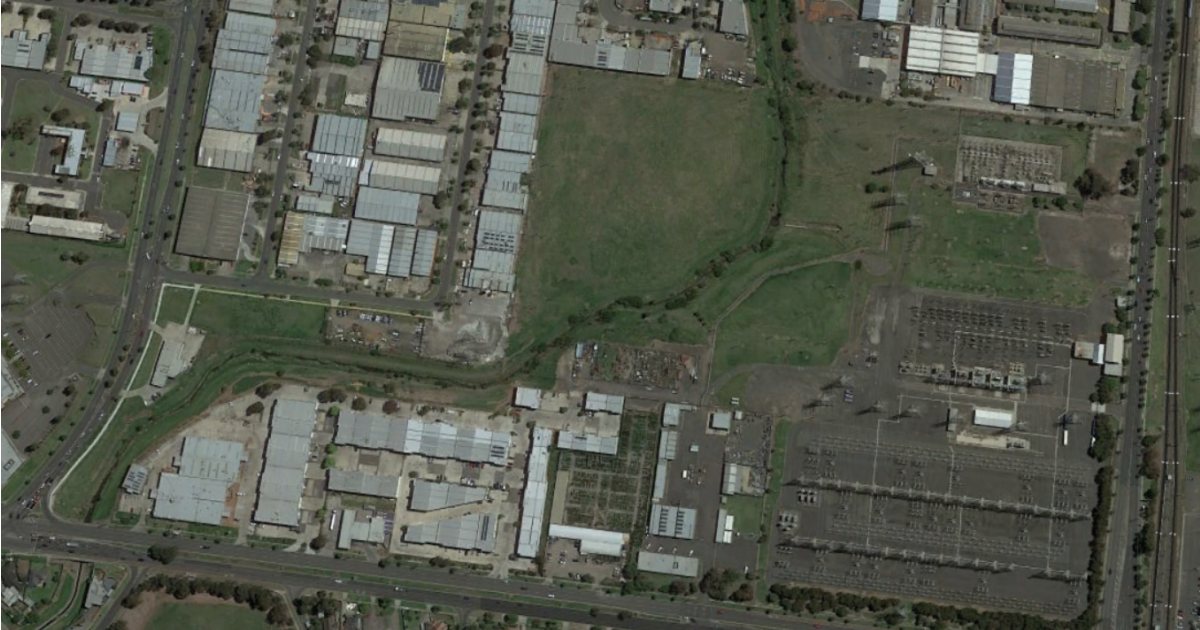
There’s not much in the way of publicly available information at this stage, but Distributed Network Service Provider (DNSP) AusNet appears to be planning for a mighty big battery in Melbourne’s northern suburbs.
According to Victoria’s Department of Environment, Land, Water and Planning (DELWP) web site, on Wednesday DELWP received a planning application (PA2201752) from AusNet associated with the installation of a “300 MV/600 MWH” Battery Energy Storage System (BESS) and associated infrastructure to the northwest of its existing Thomastown Terminal Station (pictured above, right hand side), at 15 High Street.
Thomastown is one of Melbourne’s northern suburbs; approximately 17 kilometres from the CBD and situated within the City of Whittlesea local government area.
“The development involves the construction of hardstand, access, acoustic walls, security fences and the installation of the BESS and associated infrastructure,” states the DELWP summary. “The proposed development footprint is approximately 2.33 hectares.”
… and that’s all DELWP wrote (at this point).
AusNet And Battery Storage
AusNet has been tinkering with batteries for more than a decade. In 2011, it undertook a residential battery storage trial using Selectronic inverters and Kokam batteries. Then in 2014, the DNSP kicked off a two-year trial to investigate the benefits of large-scale battery storage using a hybrid solution comprised of a 1MW/1MWh battery and a 1MVA diesel generator.
AusNet was also involved in University of Technology Sydney’s (UTS’s) Networks Renewed trial. This was initially a pilot-scale demonstration (2017-18) to test addressing network power quality issues at a small scale with solar power and home batteries. This was followed by a market-scale demonstration in 2018-19 that Ausnet took part in.
Victoria’s first utility- scale grid-connected battery was an AusNet project – the Ballarat BESS, which has been operating since 2018. You can see the 30MW/30MWh Ballarat BESS in action here, down towards the bottom of the page.
In more recent times, AusNet energy storage projects have included Gippsland’s first community battery; installed in Mallacoota. Combined with a generator, the 1MWh battery system maintains power supply for the town when issues occur along the incoming mains line that runs from Bairnsdale. There have been plenty of those over the years and given some of the terrain the line traverses, it can take crews some time to locate and fix issues.
Within the first two weeks of the Mallacoota battery commencing operations in 2021, it was called into service twice for backup purposes when mains supply was interrupted.
In October last year, AusNet and Mondo announced the Phillip Island Community Energy Storage System (PICESS) project, which is to be a 5MW/10MWh battery installed near Cowes. A permit for the project was issued by the DELWP in May this year. It’s envisioned installation will be completed by the end of 2022, ready for the peak summer holiday period when Phillip Island’s population swells from around 10,400 to 40,000.
The 600 MWh Thomastown battery project is a major step up from AusNet’s other energy storage activity and it will be interesting to read more details as they become available.

 RSS - Posts
RSS - Posts



There were floods in Thomastown in 2016. Have they done their due diligence?